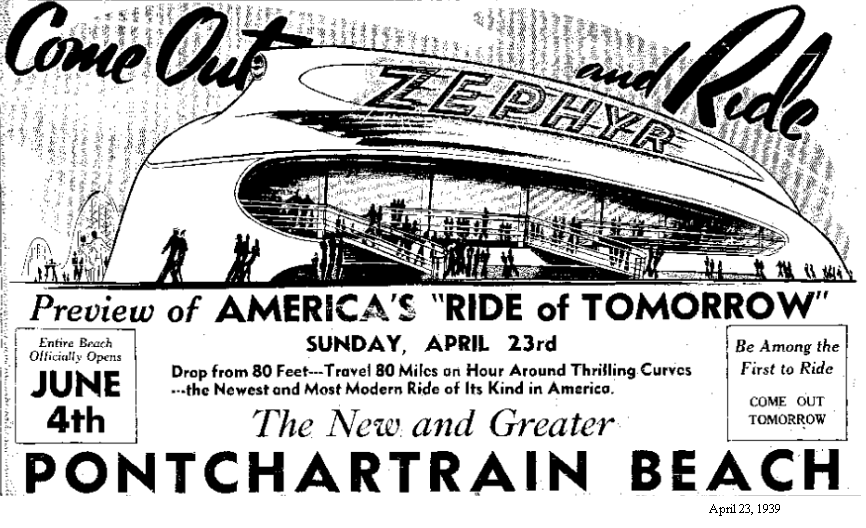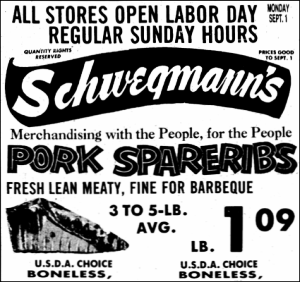|
Today in New Orleans History |
|
|
May 29



 

To receive an update for each day in New Orleans
history, join our facebook page
- Today in New Orleans History
Tweet
Photo -- NORD city-wide baseball clinic, May 29, 1948, attended by more than 2000 kids, who received instruction from members of the New Orleans Pelicans and the Memphis Chicks. After the clinic, the participants were invited to stay on to watch the game between the Pels and the Chicks.(NOPL)
|
|
|

To receive an update for each day in New Orleans history,
join our facebook page - Today in New
Orleans History.
Analytics |


